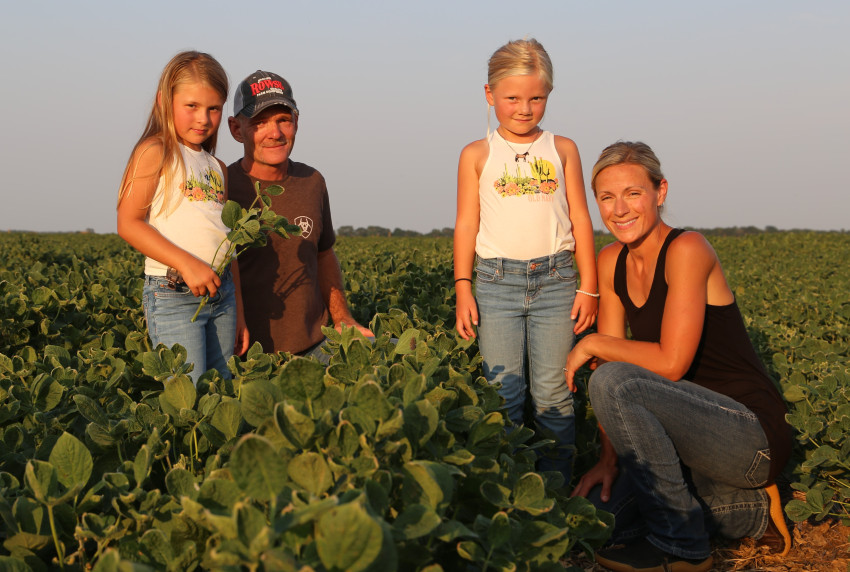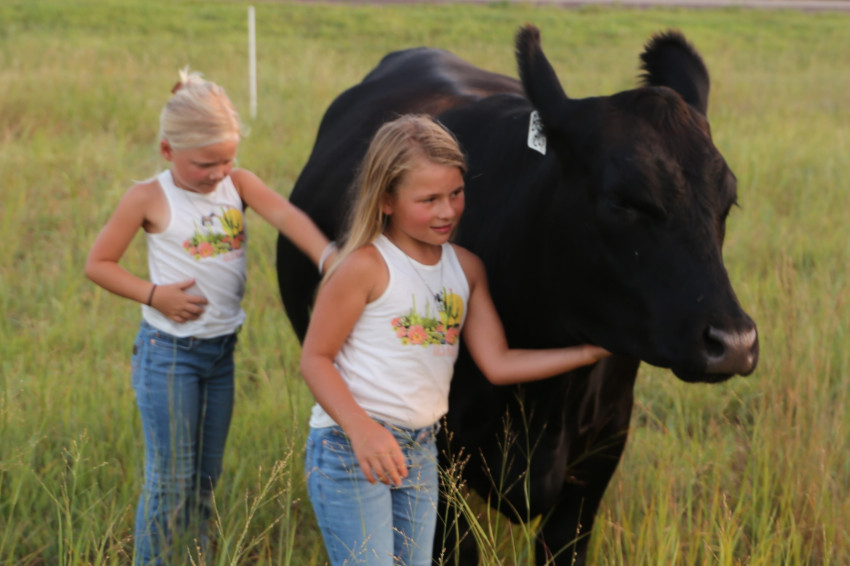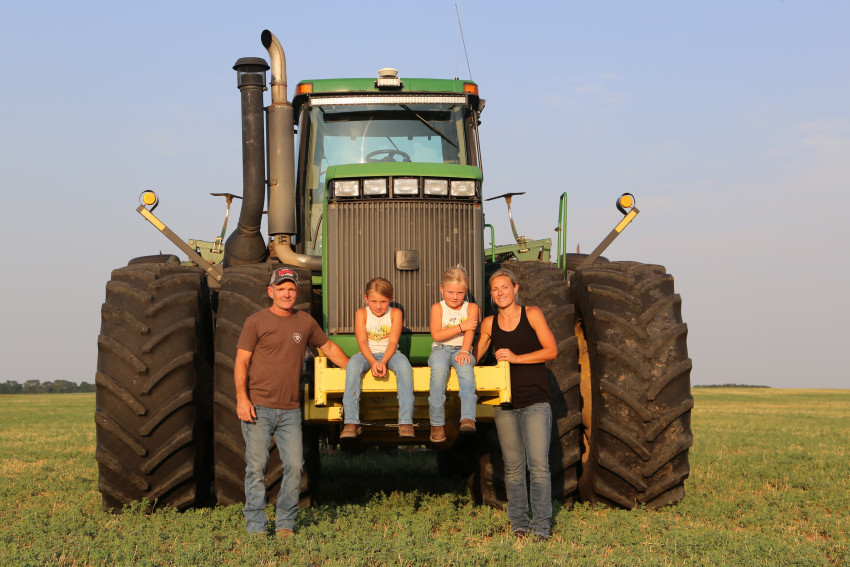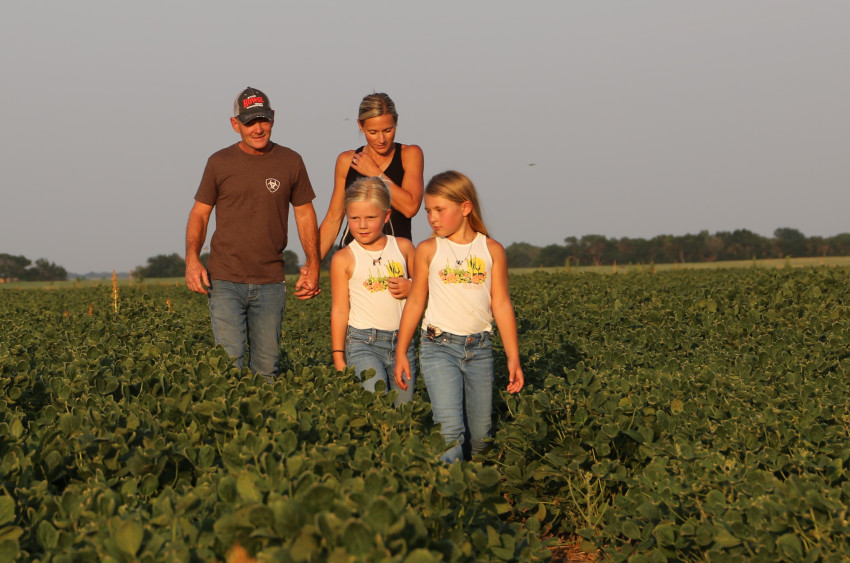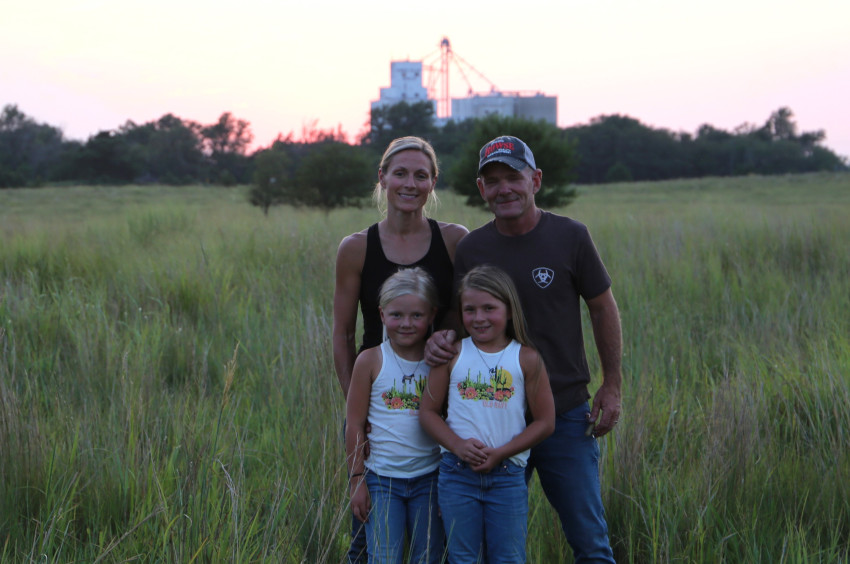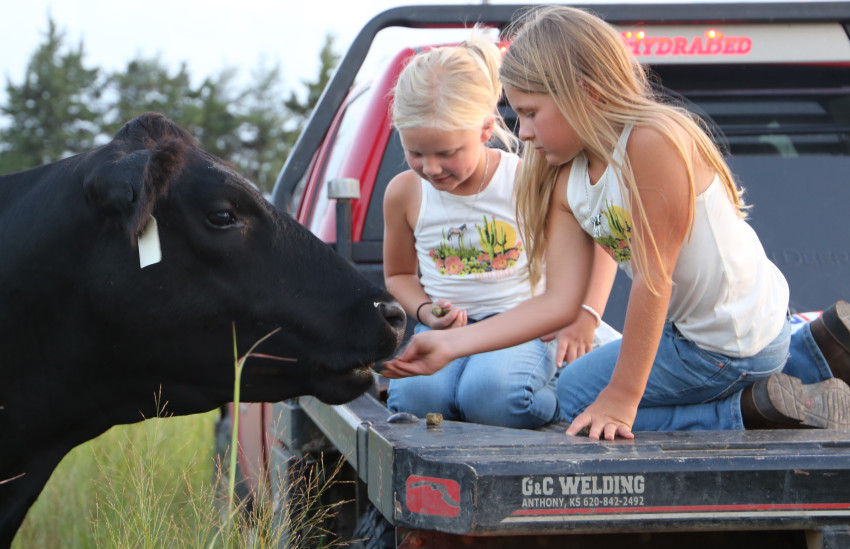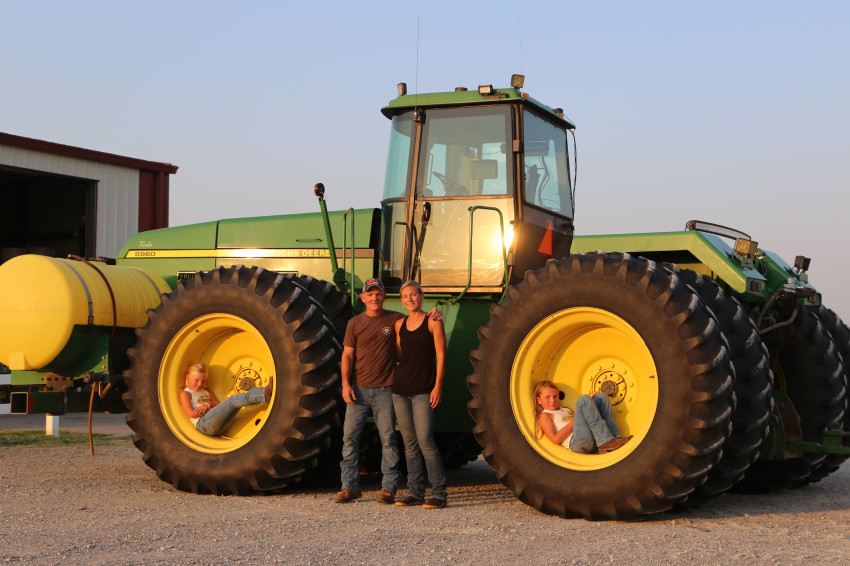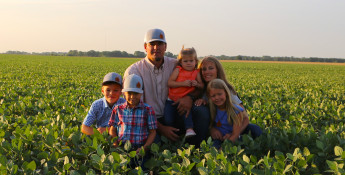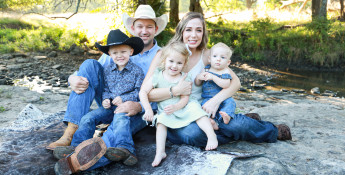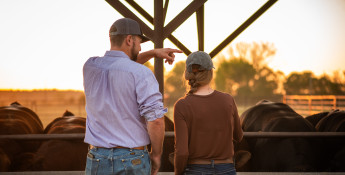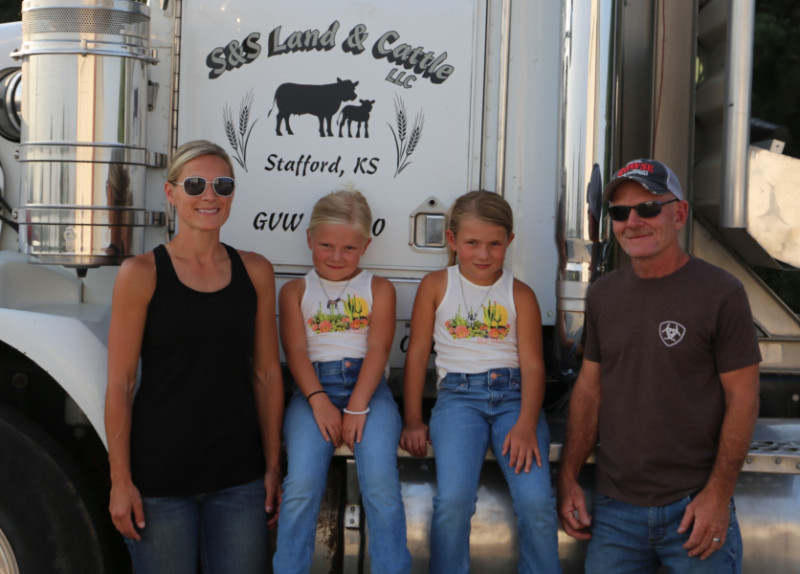By Kansas Living on April 25, 2025
Meet the Meschberger Farm Family
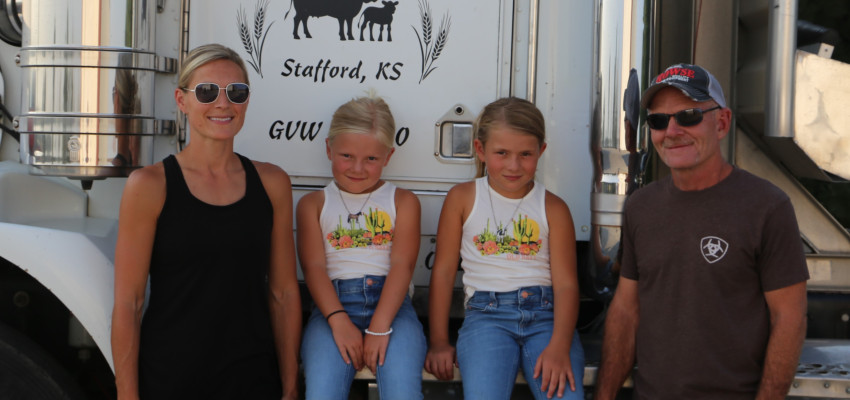
Shon and Rachael Meschberger grow alfalfa, wheat, milo, feed, corn and soybeans, along with raising cattle on their farm and ranch in Stafford County. Learn more about this family.
Rachael Meschberger:
We farm together in partnership with Shon’s brother, Shane, and have two full-time employees. We primarily grow alfalfa, wheat and milo along with some feed, corn and soybeans for the sake of rotation. We also run 250 pairs of Angus-Charolais cross cattle. We have two daughters, Masey and Eden, whom we homeschool.
What does summer look like on your operation?
Summer is a very busy time! The tail end of planting starts the season with some later-season milo and some feedstuffs we grow for baling and chopping. Then wheat harvest is a family affair, and we all enjoy it despite the long hours and sometimes grueling work. We also grow a lot of alfalfa, so there are many late nights and early mornings out in the round balers as well as long days swathing and picking up hay. Summer is also a busy time keeping up with cattle work. Rotating pastures along with the general work of fence and water maintenance and cattle health is the bulk of the work during this season.
What does sustainability mean to you?
Sustainability is really stewardship. We find the guidelines for stewardship right out of God’s word, and it always begins with people. Who are the people around you? Family, employees and landlords are some of the examples of who may affect your farm’s stewardship and sustainability. Where do your goals and their goals collide, what are you/they able to invest into the farm or land or livestock? Every situation is going to be different, and we do not see sustainability as a prescription for farm ground or for livestock, etc. Again, it’s all about the people and where we are headed together, hopefully constantly learning new ways to better the world around us. Humility is key here.
What methods do you use to protect the environment?
This is something we are constantly learning and growing in. Limiting chemical use is very important to us. We are working to find as many alternative options as we can here, from natural fertilizers to biologicals and everything in between. We also look for these options regarding our cattle health.
We practice crop and pasture rotations, and we try to use our irrigation water wisely.
Where do you see the future of your operation going?
We have a strong interest in farming for our next generation and hope to give our children as well as our employees’ children the opportunity and tools to farm. Our farming operations will grow and change with their passions and interests as time goes on.
How do you care for your animals?
Livestock brings so much joy! I grew up dairy farming and custom-raising dairy cattle for other farms, so bucket calves are not new to me. With help from our girls, we keep all the orphan calves. The bucket calf pen is like a pen full of pets!
Cattle are treated with care and patience — yes, patience. A lot of compassion goes into raising any livestock, and one important thing about cattle that you quickly learn is that “slow is fast.” We work to keep our cattle calm and happy, and a lot of that is through the way you handle them (along with friendly genetics) and time spent around them.
What three things matter the most to you as a farmer and rancher?
God, family and the people in our sphere of influence - in that order. Our relationship to God, our creator, is the highest accountability, and His word gives us the basis for how life works best. It is all-encompassing.
Our family is the people God has given us the first responsibility to, and we see that when we put family first, our relationship to others grows healthier as well. What matters most in this life is people.
What is the hardest and best part of your job as a farmer and rancher?
Prioritizing time is the hardest part of farming. There is always more work to do, always something new to learn and try and always people who need you. Prioritizing time is a constant challenge.
The best part of farming is doing what you love and are passionate about with the people you love. Farming is something the whole family can do together.
What does a typical week/month look like for you?
Our days always start with breakfast, haha! Then Shon heads to the farm and gets a game plan for the day/week while the girls and I work on school studies in the mornings. Farm days may typically look like cattle work/calving chores in the winter, working ground or drilling/planting in the spring, wheat harvest or hay baling in the summer and working ground/ drilling wheat in the fall. All throughout the year, the shop is busy with all kinds of mechanical work to keep up with repairs and maintenance. Cattle work is also a year-round chore with busy seasons being January and February for calving, April for breeding and fall for preg checking. All year long, we keep up with moving cattle to appropriate pastures.
What's one thing you've changed on your operation since you started?
Shon and his brother Shane started their own operation by starting a custom cutting business until there was enough growth to be home farming full time. Stepping away from most of the custom cutting work has been the biggest change in this operation.
What is one thing you wish grocery buyers knew about your operation?
We are passionate about caring for our animals and the farm. We truly care about the details of the whole operation and how it affects everything and everyone around it. We are constantly and humbly learning new and better ways to do what we do. We are far from perfect, but we will be the change we want to see.
What's a question you have for grocery buyers?
What are the top three things that matter most to you as a consumer? (this could be things like the cost of the product, nutritional value, animal welfare, etc.)
What is your family's favorite protein? Any recipes you want to share?
We prefer beef. Beef brisket is a favorite special occasion meal and is super simple to make. This is how we like to prepare it:
- Rub fresh or fully thawed brisket all over with about 1/4 cup of yellow mustard, then rub about 1/8 cup of brown sugar into that. Add a few drops of liquid smoke and rub that in too.
- Sprinkle with salt and pepper and your favorite rub. (We prefer Cimarron Docs Sweet Rib Rub and BBQ Seasoning)
- Smoke for 4 hours on direct grill rack.
- Turn smoker temp up to 225 degrees and put brisket on an open pan for 4-5 hours until internal temperature reaches 160 degrees.
- Remove from the smoker and wrap in aluminum foil, pouring juices over the top. Let rest for about an hour, then slice and serve.

